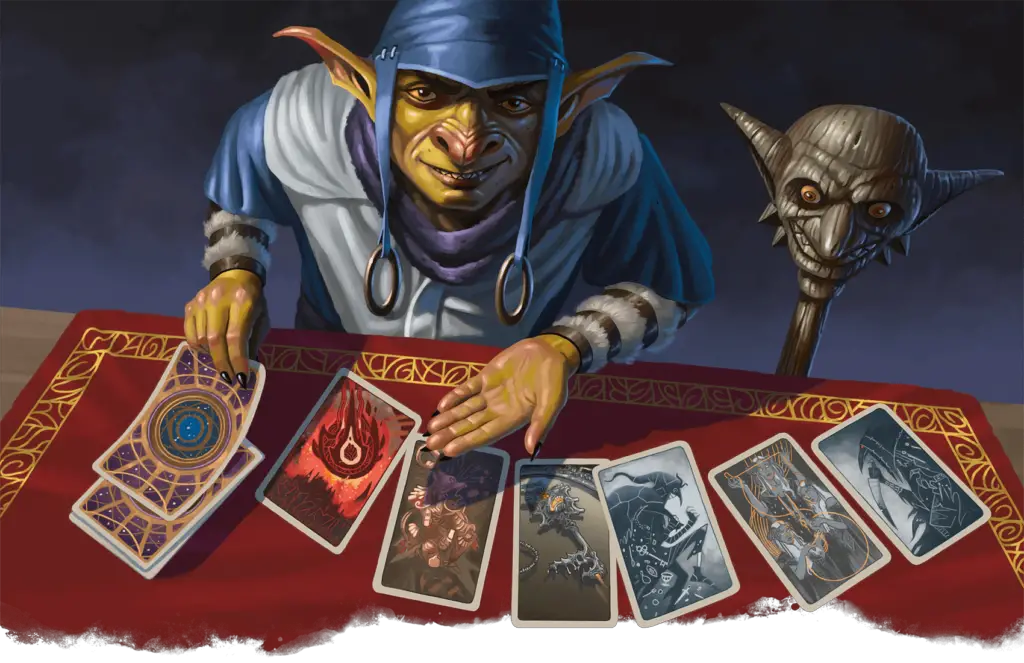“Ambassador” by Feael, Creative Commons Attribution-Noncommercial-No Derivative Works 3.0 License
I’ve been an improvisational comedian for a decade this year, so I have heaps of thoughts about improv. When I’m performing for an audience, I ask the audience for prompts to steer what’s about to be made up. It’s more fun to have a framework to bounce around in. Floating in outer space, going in any direction forever, isn’t fun. Prompts enable me to explore the space within set boundaries. It’s also debatably easier to play and improvise within a frame, especially as part of a group. To illustrate this point, walk up to someone and ask them to say something funny. I bet they’ll be uncomfortable with the vague, and frankly rude, request. I’m comfortable with that assumption because it happens to me all the time when people learn that I do improv.
This concept applies similarly to D&D. I don’t enjoy the experience when my DM improvises too much (no true framework). Preparations, plans, and rules are important for enriching improvisation to occur at the table. I want to play a game that is neither set in stone (like a video game) or completely made up (like playing pretend with a child).
If you don’t know what I mean about improvisation, I’ve noticed several types of DM improvisation in D&D. Most of these examples of improv are healthy, so I want to be clear that I’m talking about DMs that are “Faking” it:
- Faking: Deploy improv to mask lack of preparation.
- Banking: Improvise to fill in gaps of previous sessions’ preparations. Last week’s excess preparations make the current game easier to run.
- Railroading: Run a stringent game that is overly prepared with no organic improvisation or true choices.
- Playing: Improvise based on player choices without revealing deviation from plans. Just having fun!
- Shading: Add details like NPC personalities on the fly, like adding shadows to a drawing after the art is mostly complete. Experienced improvisers tend to do this.
- Spanking: Spite players with unforeseen problems when DM is angry. I’ve heard D&D horror stories about this.
- Ruling: Judge how a game mechanic will pan out when it doesn’t have a clear answer in the core rulebook, or if the DM doesn’t know the rule and just needs to make a quick call to keep game pace.
- Mapping: Create maps for battle and exploration at the moment initiative is rolled. DM is possibly prepared with a basic map in mind, but it takes up in-game time to get the map together. This technique may be optimal if many battle scenarios are possible.
How much improvisation from a game master is too much for a tabletop RPG like D&D? The answer may vary from player to player, but I want to give my perspective. Keep in mind I enjoy the freedom of improvisation within the TTRPG medium, so I want to see it done well. Here’s my bittersweet story of D&D improvisation.
My Story
My first D&D campaign had me hooked. I listened intently, explored greedily, hoarded indiscriminately (bag of holding), and neglected my real-world homework. I believed the DM had a grand plan and a massive world with quests waiting for us. But around level five, I lost that feeling of wonder. It became apparent that my DM was actually improvising much of what happened in our sessions. He did prepare for sessions, but I became perceptive to improvised moments. I still enjoyed the game, but it wasn’t the same anymore. I’ve never been able to discover that sense of wonder again.
Soon after my first campaign ended, I became a DM myself. This made me more aware of how much DM’s must improvise because they can’t plan for everything the players will do. I like that improvisation can be part of a D&D game, but my enjoyment suffers when I know we’re improvising. Improvising isn’t problematic if the players obviously depart far from the beaten path that the DM has prepared for them, but when a DM is improvising too much within the path that is supposed to be pre-crafted, it’s off-putting to me.
Excess improvisation emits the impression of a DM that doesn’t care about the game/story as much as I do, decreasing my investment in the game. Immersion dissipates as I perceive instances of obvious improvisation, such as fights getting easier if the PC’s are in peril. I’ve actually full-on attempted to get my character killed in a fight (secretly) to see if my DM could pull the trigger; most of them won’t do it. Battles lose their edge if I don’t believe the stakes are real.
Playing Pretend
Children love to play pretend, but it isn’t every adult’s favorite sport. Playing pretend feels silly because anyone can do anything; there’s no mechanical challenge when playing pretend, but it does involve storytelling. Some people play D&D just for the story, so a game with 100% improvisation is probably not an issue for them. Contrary people like me enjoy the rules, preparation, and structure of D&D when it’s balanced with improvisation. Even professional improvisational comedians tend to prefer a ‘game’ and a ‘prompt’ to aim their creativity; they like having a box to freely bounce around in rather than the entire vacuum of space to float around in.
I make these points to illustrate why it’s important that my DM not make up everything on the fly, or at least hide it if they do. When I’m playing in a game that is being made up in realtime, it feels more like playing pretend. The DM will still use rules and monster stats even when improvising, but the game plot will not feed as impactful to me when it’s applied by the DM without prior thought.
How Much Improvisation is Okay?
If a DM prepares tentpole concepts like a town or a religious site, I find it acceptable if NPCs and lore bites are improvised. It would be a lot to ask of any DM to prepare everything, and mostly in vain due to player choices. I do expect the DM to have concepts prepared. I believe improvisation should exist only within prior plans (unless the party has totally gone off the rails).
So What Now?
Players:
It’s a bummer to feel disengaged from a game that is overly improvised, but I recommend we stay positive. The real fun comes from trying to shape the world we’re playing in, not the other way around. And let’s definitely cut our DM’s some slack when they’re not prepared as much as we think they should be. This is one of my grand weaknesses as a player, but I combat it by forcing myself to continue playing the game in a way that is fun for everyone, even if I’m interacting with frivolous NPCs and quests that the DM is 100% making up.
We may need to talk to our DMs that improvise without enough preparation. If we’re open about our concerns with the game (in private, not in front of the group), the DM will either take the feedback to improve, or show that more preparation was done than we realized. It’s always possible that candor won’t be appreciated or helpful, so roll an insight check to see if you should talk to your DM.
Dungeon Masters:
If you’re a DM, try to have at least basic concepts prepared beforehand. You don’t need to know the height of every tree in the forest, but be prepared to make a decision about how tall they are as you scan the preconceived concepts of your mind’s eye. Don’t stress yourself out. But please give your NPCs names that are memorable (no more Bob or Greg). I have found that players recognize preparations and remember names better when I base NPC names off similar characters from history or from pop culture fiction. For example, I once based every archmage’s name in a wizarding network on real-world magicians. The players enjoyed figuring out why I chose the names, and they remembered the names for the session.
Conclusion
I want to hear from you, our readers, about your experiences (for better or worse) with improvisation in your games. Do I need to loosen up, or do I make sense to you? I really hope I explained my viewpoint accurately and helpfully. Comment below to talk to me (Flutes) and Opal about improv. Let me know if you want me to discuss improv in future articles because I have heaps to say about it.
You might also enjoy my video about why peril matters (see below). It’s a similar topic to prep vs. improv.




